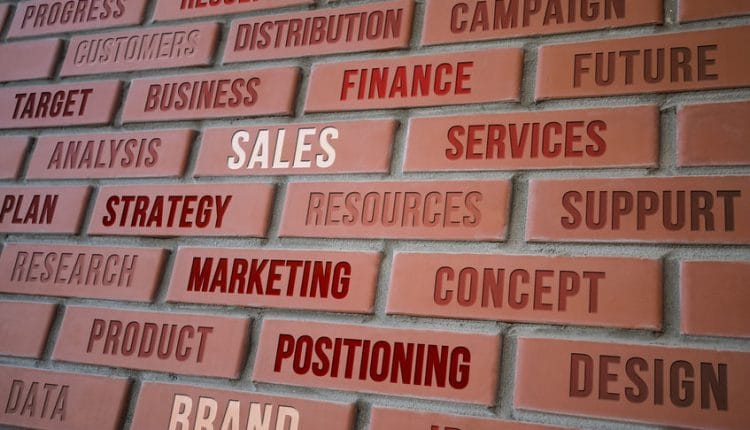For many, visualizing and executing the logical steps of any operation comes intuitively. They know from experience that the bread will take 2 minutes and 23 seconds to toast while the omelet will take 3 minutes to make. They also know that they will need to holler out to their kids at least 2 times before they get seated for breakfast.
And for these people, breakfast is a smooth, well-oiled morning routine where everybody gets to butter a hot toast and eat it with an omelet still warm from the pan.
My husband on the other hand will call in the kids first, make them wait while he starts on breaking eggs for the omelet and THEN puts bread in the toaster while the omelet cools on their plates. (If we are lucky, he remembers to take and thaw out the rock hard butter from the fridge so we can spread it otherwise we do without.)
Strategy is simply the act of visualizing and orchestrating the complete plan from inception to execution.
To know the many steps needed so that not only can you prioritize and multitask when needed but also know the weakest links in the chain that have the highest probability of breaking down. Either in your mind or/ and on a document that you can share and processize within a team.
Content Strategy very simply is knowing who you are writing for, why it would be relevant in their lives, the format and channels they prefer as well as what we want them to do after they read it. Going in without a strategy could means breaking a dozen eggs without a pan to cook them in or worse, cooking eggs for vegetarians.
PROTip: It also looks great on your resume (Content Strategist, anyone?)

Aha…If you ignore investing time in having a clear idea of what you need your content or life to do, it will do…NOTHING. Yes, Absolutely NOTHING.
You will spend hours writing and proofreading the humor, inserting the necessary keywords and hashtags, hell, you even promote it on the 3 biggest platforms. But you do not get a single squeak.
Why? How should i know why…. it could be the funny smelling organic eggs, the unplugged toaster or simply the kids ( it’s probably the kids!)…A content strategy not only improves chances of success; it’s a great starting point to find what what may have gone wrong.
Also, when you write content that does not get seen or worse, gets seen but not appreciated, it sends User Behavior signals to Google that down ranks your content link as a result.
Plus guess what, there is no prize for hitting 3 inches left of the bulls eye unless you have a strategy document that says THAT was the goal.

The following are what have worked for me. (Customize as needed .. And hey.. share your tips so I can update this article)
[insert page='how-long-should-your-posts-be' display='single-related-article-02.php']
Knowing what people are interested in, what they will find relevant enough to act on takes time and plenty of it. As a local dentist you need to know what will trigger that phone call - is it whiter teeth for a date or a graphic image of what could be going on under that neglected cavity!
But while time is what you need, time is not always what you have and I suggest you consider starting with my 3 favorite hacks given below:
PRO tip : The above may appear to be a rhetorical exercise but Marketing is a minefield today.. more and more marketeers are expected to deliver on tasks and goals that don’t feed into each other. So if you find yourself tasked with maintaining unique content on 3 new social profiles but measured on leads pipeline, you may want to rethink if social is the best content strategy for lead generation or would you be just better off, redesigning the landing page.
PRO Tip: How to make the content work harder: Try and recycle or repurpose performing content. Why re-invent the wheel? Quote people smarter than you or simply aggregate and repost things that you found valuable and interesting when you don’t have anything new to say. Make sure to cross link between related content.
And now… the Worst 5 mistakes that I made in my first year in content marketing.
1. I mistook content marketing for marketing. I tried to be smart about it but content written for the purpose of selling something reads and feels different from content that is written purely for relevance and engagement. Think about it.. how many times do you send out or receive an email with no agenda to sell stuff or click a link that sells stuff? Just put yourself in the shoes of your user and try and imagine your response to your marketing.
2. I spent too much time on my favorite part. Or rather the part that came easy to me. I would spend hours writing and rewriting a long format article or fine tuning a 10 word post without a commensurate effort in the content promotion strategy or action needed. This compromised the time that I had left for the other equally relevant parts of my strategy often dooming the project to failure.
3. I confused the metrics with the goal. With a review around a corner and a daily tracker submission, it is easy to lose sight of what your job is and focus in-stead of the numbers that will bring you garlands and glory.
[insert page='why-a-free-seo-tool-junkie-finally-joined-the-paid-club' display='single-related-article.php']
Whatever you do.. do not break the hard-earned trust of users.
4. Educate your internal customers: I guarantee that you will not find this point in any content strategy guide but it can make or break your content marketing career. More often than not, people can be unusually optimistic about new channels and expect results faster than you can deliver. If you do not take the time to manage expectation, you will fall prey to internal pressure and skip essential steps crucial to your success.
5. I took it too seriously : In the final analysis, content marketing is not new. Neither is having a content strategy. We cannot afford to put it on a pedestal simply because of it’s stated exalted goals. It is a means to an end and that end is still sales revenue.
[bctt tweet="You want to sound relevant, nice and engaging so that you can win trust and then use that trust bank to ultimately make a sale! You’re just a more polished ad." username="relevance"]
It’s a bit of a dilemma.. but hey.. isn’t everything ?
As an add on 6th point , I must confess that I was simply not ready to create much less deliver on a content strategy in my first year in content marketing. Simple as it may have been in retrospect, building a content strategy often requires accepting that you cannot do it alone. In most cases it actually depends on learning that can only come through making the kind of mistakes I made.
If you think you are ready to make your own, you could also read : 3 Steps to create a Killer Content marketing Strategy